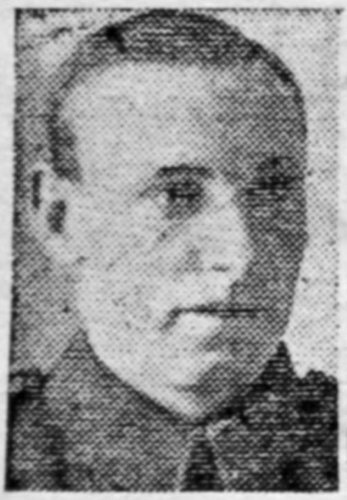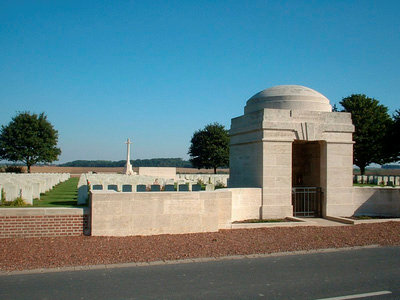Name
Walter Scott (MM)
Conflict
First World War
Date of Death / Age
22/09/1918
Rank, Service Number & Service Details
Serjeant
3650
Machine Gun Corps (Infantry)
33rd Bn.
Awards: Service Medals/Honour Awards
British War and Victory medals
Military Medal
Cemetery/Memorial: Name/Reference/Country
GOUZEAUCOURT NEW BRITISH CEMETERY
VIII. E. 14.
France
Headstone Inscription
Not Researched
UK & Other Memorials
St Mark’s Church Plaque, Colney Heath
Pre War
Born in Colney Heath, Hertfordshire and lived in Primrose Cottage, High Street, Colney Heath, Hertfordshire in 1901 - this is the house next door to Rose Cottage on the opposite side of the road to Colney Heath Farm and the Red Cow Cottage, Colney Street, nr St Albans, Hertfordshire in 1911. His parents were James & Emily Scott.
In 1901 Walter (10) was residing in Colney Heath with his aunt and uncle, Nathan and Emily Swain. Walter’s aunt and uncle are buried in the new grave yard at St Mark’s church. Emily Swain died on 1st September 1935, aged 70 and Nathan on the 22nd February 1958, aged 89. The 1901 census records Walter’s father, James, as living in Colney Heath with his two grown up sons (brothers of Walter). Walter’s mother was not recorded as in residence. Walter was living with his aunt and uncle. However this was not uncommon for families living in small houses. The 1911 census records Walter and living with both his parents and his brother Arthur. He worked as carter contractor in 1911 and a gardener at Colney Heath Vicarage in 1914
Wartime Service
Walter enlisted in the Bedfordshire Regiment in St Albans on 4th September 1914 and prior to his posting to the Machine Gun Corps Walter was Private 14450 in the Bedfordshires.
The Herts Advertiser recorded Walter’s death as “Another Colney Heath Sacrifice” and reported: “The sad news has reached Mrs Scott, 12, St Peters Street, St Albans, that her husband, Sergt. Walter Scott, MGC, of Colney Heath, was killed in action on September 22nd [1918]. Sergeant Scott voluntarily enlisted on September 4th, 1914, and was sent to France early in 1915. He saw much fighting on the Western front and was badly wounded in July, 1916, being sent to hospital at Guildford. On recovery he was again sent to France early in 1917, and experienced many a hard time. On January 9th of this year [1918] he was awarded the Military Medal for rescuing wounded men under heavy shell fire. In a letter to Mrs Scott, the Colonel of his battalion writes: “Your husband was one of my most valued non-commissioned officers. He had always set a fine soldierly example and is hard to replace. We had always placed the utmost reliance in him and he was a fine example to the men of his section.”
Acknowledgments
Graham Clark – World War One – The Fallen of London Colney, Grace Clark, Jonty Wild



